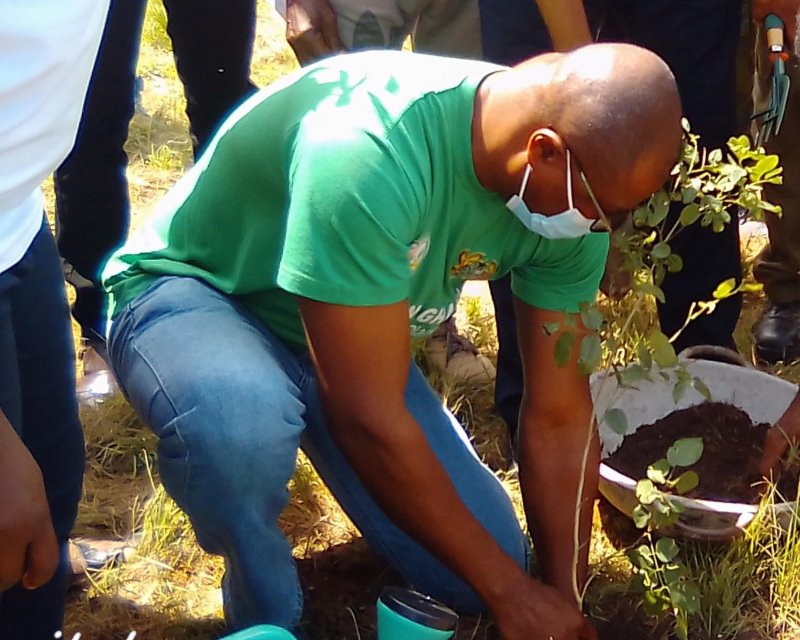The University of Environment and Sustainable Development (UESD), in partnership with the Yilo Krobo Municipal Assembly and the Forestry Commission, on Friday, planted over 200 trees under the Green Ghana project.
The three partnership institutions are expected to further plant 950 trees to help conserve the environment in Yilo Krobo Municipal area.
Professor Eric Nyarko-Sampson, Vice-Chancellor of UESD, advised the youth to be sensitive and responsive to the call for conserving the environment as part of their civic responsibility.
He said the university had designed programmes to inculcate in graduates the passion for greening and environmental sustenance to help achieve the objective of the Green Ghana project.
Prof Nyarko-Sampson, who was speaking during the launch of the Green Ghana project in Somanya in the Yilo Krobo Municipality, said tree species to be planted included 250 Mahogany, 500 teak, 50 ellipsis, 100 Acadia and 50 other different tree species.
“It is, therefore, not by accident or a mere coincidence for the organizers to choose the UESD as the venue for this historic launch,” he said.
Prof Nyarko-Sampson said the government’s plan to scale up the campaign by planting 100 million trees was aligned with the Ghana Forest Plantation Strategy.
It was in line with the government’s commitments to various international agreements, including the Sustainable Development Goals (SDGs), African Landscape Restoration Initiative (AF100) and Bonn Challenges.
He, therefore, called on the government, NGOs and CSOs supporting the initiative to turn to the University Collaboration and cooperation as it was in line with its mandate.
Mr Ebenezer T. Kupualor, Yilo Krobo Municipal Chief Executive, explained that the collaboration with UESD to launch the Green Ghana project was because of the University’s mandate of conserving the environment.
Since 1990, the annual deforestation rate for Ghana has been estimated at 0.6 percent and the Ashanti region which is the second-largest host of forest reserves in the country has recorded annual deforestation relate to 0.5 percent higher than the national overall estimate.
Despite the government’s efforts to maintain and protect Ghana’s forest reserves, Mr Kupualor said deforestation continued and it was as a result that President Nana Addo Dankwa Akufo-Addo has taken the important step of ensuring that five million trees were planted nationwide.
“Each Ghanaian needs to get involved to help achieve this objective for our collective good as a country.”
He said as part of the Municipal Assembly’s contribution to the national objective of planting five million trees, it was planting 26,000 trees within two weeks.
He indicated the planting exercise would start in basic school compounds and church premises and along the newly constructed roads from Nkurakan to Somanya as well as Yilo Krobo Municipal roads.
He said to ensure the success of the exercise the assembly planned to implement some key strategies in getting the right trees at the right places to ensure communities and neighbourhoods were greener with larger- growing, healthier, long-lived trees that provide environmental, social and health benefits.
He said together with the Forestry Commission, education and training would be provided for private property owners as an integral part of all planting initiatives.
He said it would step up tracking, monitoring and reporting mechanism on the survival and health of all trees planted, and more importantly share success stories and lessons learnt to inspire and continually improve the planting efforts.
Mrs Beatrice Oheneba Nti, Administrative Officer of Forestry Commission, Somanya, said the Somanya Forest District would lead the people in Lower Manya Krobo, Upper Manya Krobo, Yilo Krobo, Asuogyaman Akwapim North and South and Okere to plant 100,000 tree species.
Source: GNA

